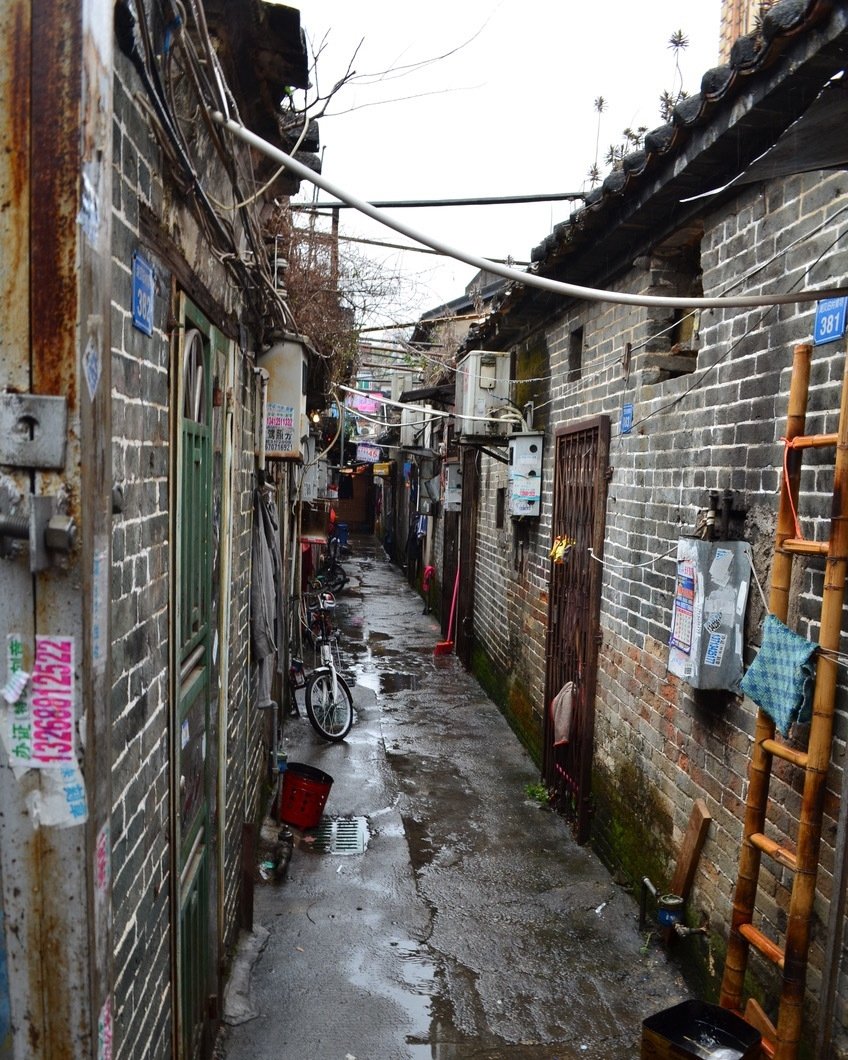May 1, 2018
RCHI Published in Habitat International: “Promises and Perils of Collective Land Tenure in Promoting Urban Resilience: Learning from China's Urban Villages”
A snapshot of Hubei Village's redevelopment, from early consolidation (Photos by authors: Shi, Lamb, Qiu, Cai and Vale)
RCHI researchers Linda Shi, Zachary Lamb, Xi (Colleen) Qiu, Hongru Cai, and Lawrence Vale co-authored the journal article “Promises and perils of collective land tenure in promoting urban resilience: Learning from China's urban villages.” The article was published electronically April 26, 2018, in Habitat International and discusses RCHI’s work to understand the role of collective governance in the urban villages of Shenzhen, China.
Article highlights:
Conceptually links land tenure security to urban resilience.
Analyzes the impact of collective land tenure on resilience in China's urban villages.
Collective governance helps translate the potential benefits of collective tenure into environmental and economic gains.
Read the full article here: https://doi.org/10.1016/j.habitatint.2018.04.006
Abstract: New frameworks for “urban resilience” frequently overlook the role of property rights and tenure security in shaping vulnerability, as well as how different property rights regimes shape societal capacity to adapt to environmental and developmental disruptions. We contribute to these discussions by examining how collective urban land tenure affects community-scale resilience, defined as environmental wellbeing, productive livelihoods, and empowered governance. We use urban villages in Shenzhen to study how this widespread phenomenon of collective land ownership in Chinese cities allowed rural villagers to adapt as cities spread around them over time. Drawing on a literature review, interviews, and a field visit to Shenzhen, we find that collective tenure in Shenzhen’s urban villages has helped them avoid some of the limitations seen in household-level tenure formalization efforts elsewhere. Collective tenure enabled rural villages to create self-governance mechanisms that allowed them to transform individual and collective assets into vibrant, well-serviced, and mixed-use neighborhoods. Urban villages house most of Shenzhen’s residents and have helped underwrite the region’s industrialization process. However, collective tenure also has hindered integration with Shenzhen’s urban infrastructure, governance, and taxation systems resulted in astronomical profits for village elites and repeated historic patterns of unequal land ownership in China. The promises and perils of collective urban property rights seen in Shenzhen call for research on other such models around the world to further inform whether and how such property rights regimes can support equitable and holistic notions of urban resilience.
Questions about RCHI? Contact us here
About RCHI: The Resilient Cities Housing Initiative (RCHI), directed by Professor Lawrence Vale, explores the ways that shelter and settlements can be designed to anticipate and respond to the 21st century environmental and security challenges of an urbanized and urbanizing world. At its core, RCHI investigates the challenges of developing and redeveloping the housing environments of the least advantaged dwellers in a city-region. RCHI supports integrated scholarship, cross-disciplinary curriculum development, and innovative practice that bring together housing design, housing policy, urban design, environmental and energy policy, real estate development, new media technologies, and the visual arts
Tagged: China, Redevelopment, Housing, Urban Resilience, Resilience, Vale, Lamb, Urban Village, Habitat



